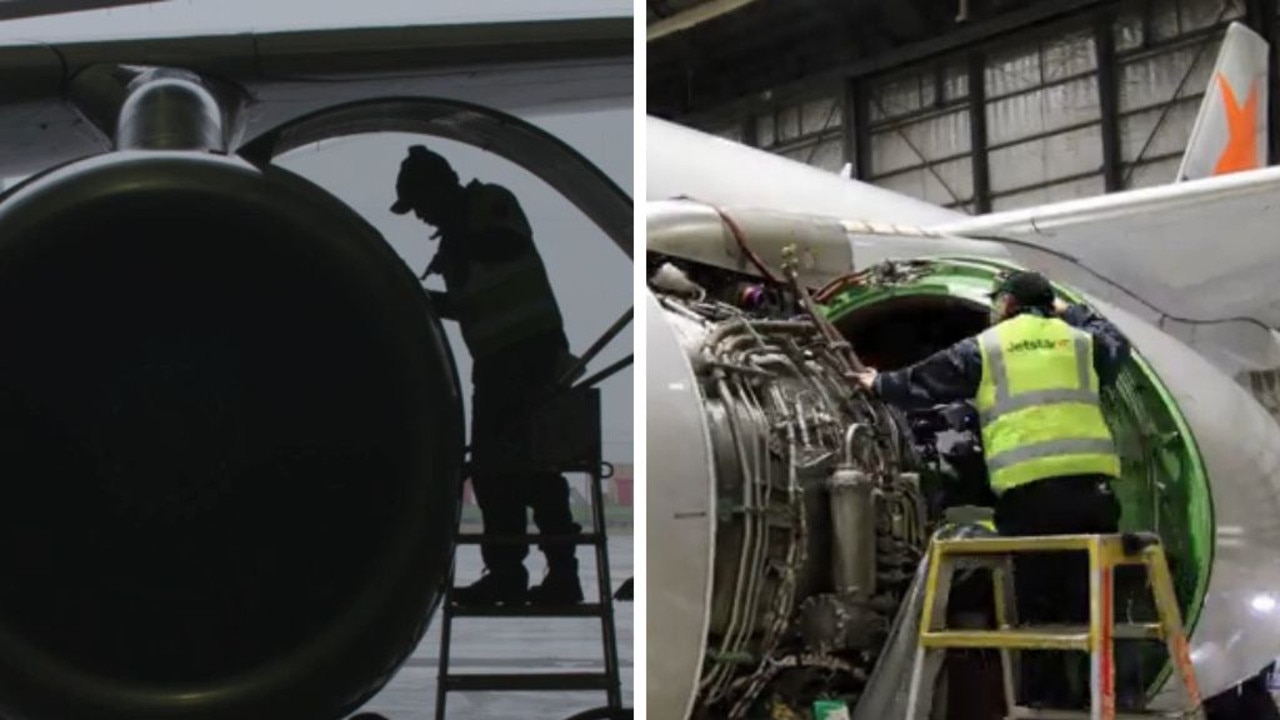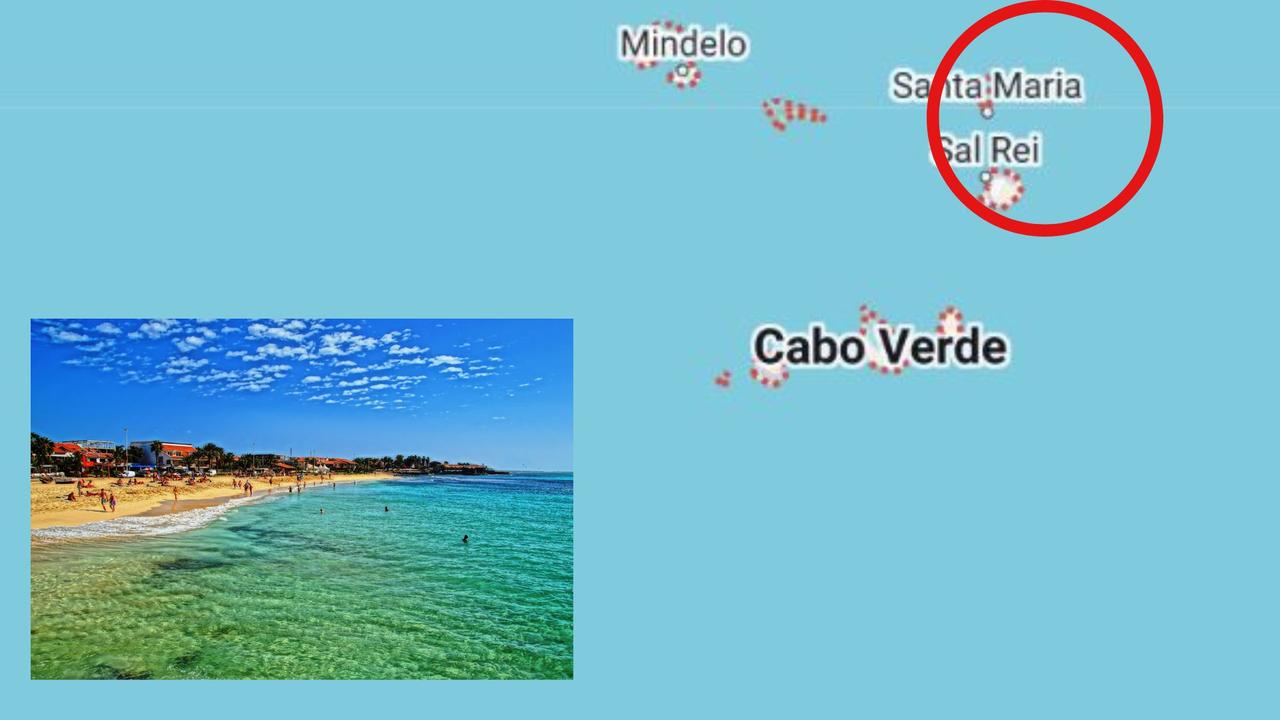Coronavirus Bali: Australian tourist hotspot on brink of collapse
On average, this holiday hotspot hosts around 1.2 million Aussies each year. Now, there’s fears Bali could be about to hit a “catastrophic” end.
It’s one of the most popular places for Australians to travel to, with the holiday hotspot of Bali welcoming around 1.2 million of us each year.
But after stopping all foreign visitors from entering the Indonesian island, as well as putting those who decided to stay or simply call Bali home into lockdown, beaches, hotels, streets, clubs and temples have come to a standstill.
RELATED: Follow the latest coronavirus news here
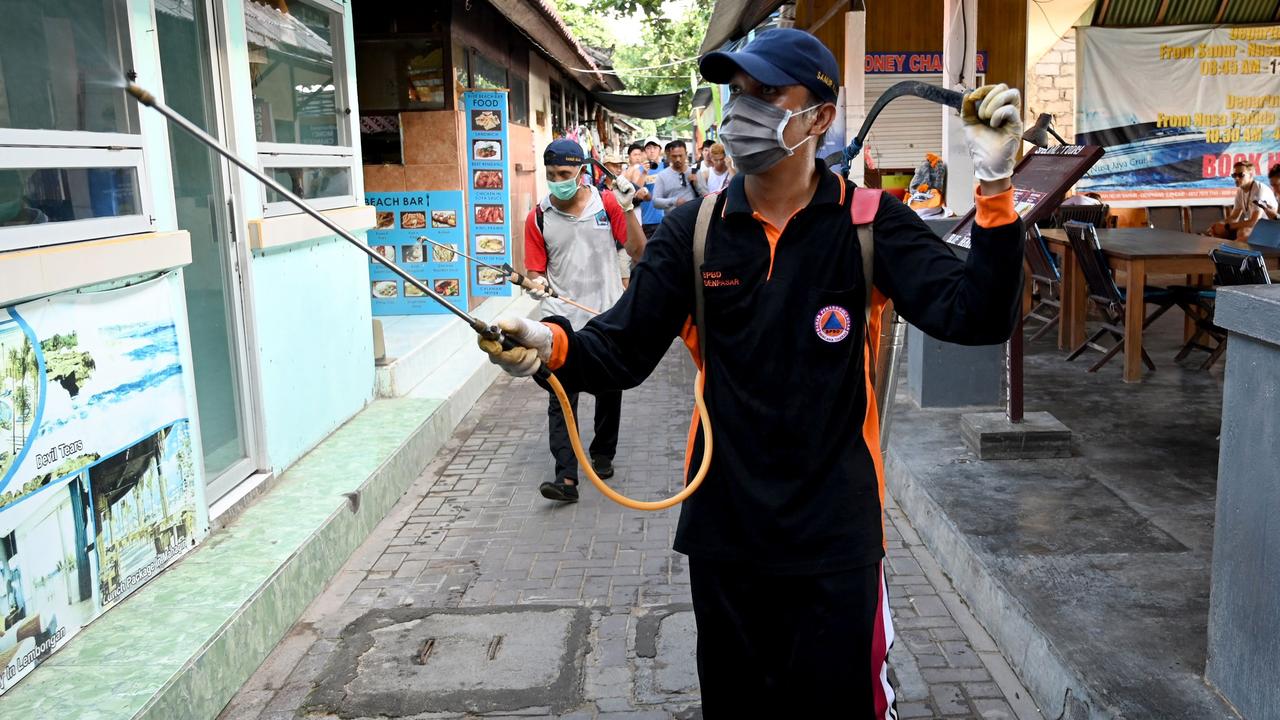
RELATED: Influencers in Bali get tested for virus
After the Indonesian Foreign Affairs Minister announced travel restrictions in March that meant that only Indonesian citizens, diplomats and family members would be able to enter the country, some of the most popular regions on the island ofBali remain empty.
Considering how much Indonesia relies on the tourism industry, the decision to close the borders to foreigners wasn’t taken lightly.
But some say the decision could be catastrophic for the island – and may even bring Bali to collapse.
The latest tourist arrival statistics show February dipping almost 30 per cent year on year, the lowest monthly tourism number in four years.
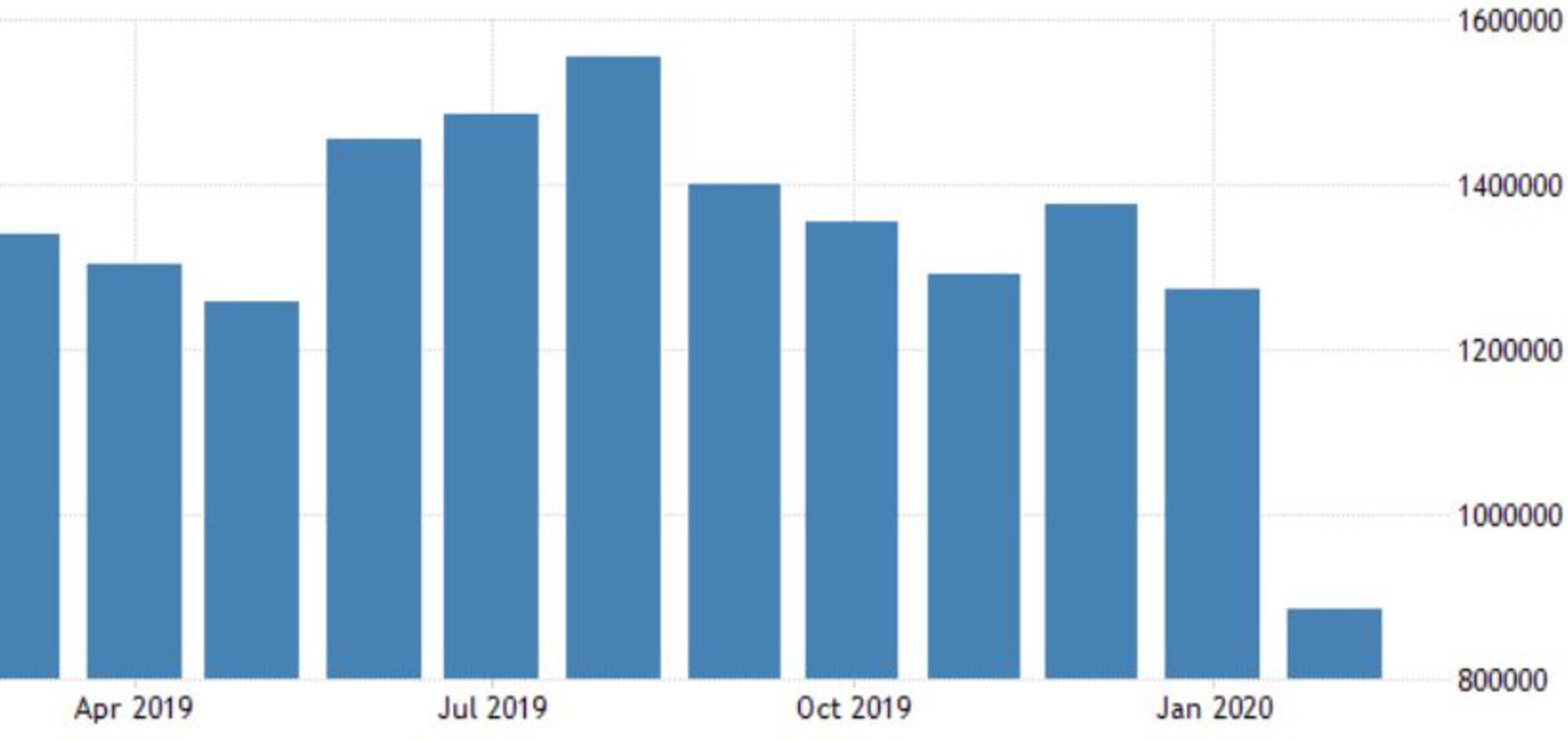
“The coronavirus has collapsed the Balinese economy … it’s been a steep drop since (mid-March) when social-distancing measures were put in place,” Mangku Nyoman Kandia, a tour guide who has been in Bali since 1984, told the ABC . “No tourist, no money.”
Fellow tour agency operator I Gusti Ngurah Adi Mahendra said he had lost 80 per cent of his income by mid-March.
“The current impact is quite felt here and concerning for everyone,” he told South China Morning Post. “Bali’s tourism can be said to be almost totally paralysed. This is very worrying.”
Ross Taylor, president of the Indonesia Institute at Melbourne’s Monash University, says Bali’s heavy reliance on tourism for so many years could be their undoing at a time when the world has been told not to leave their homes.
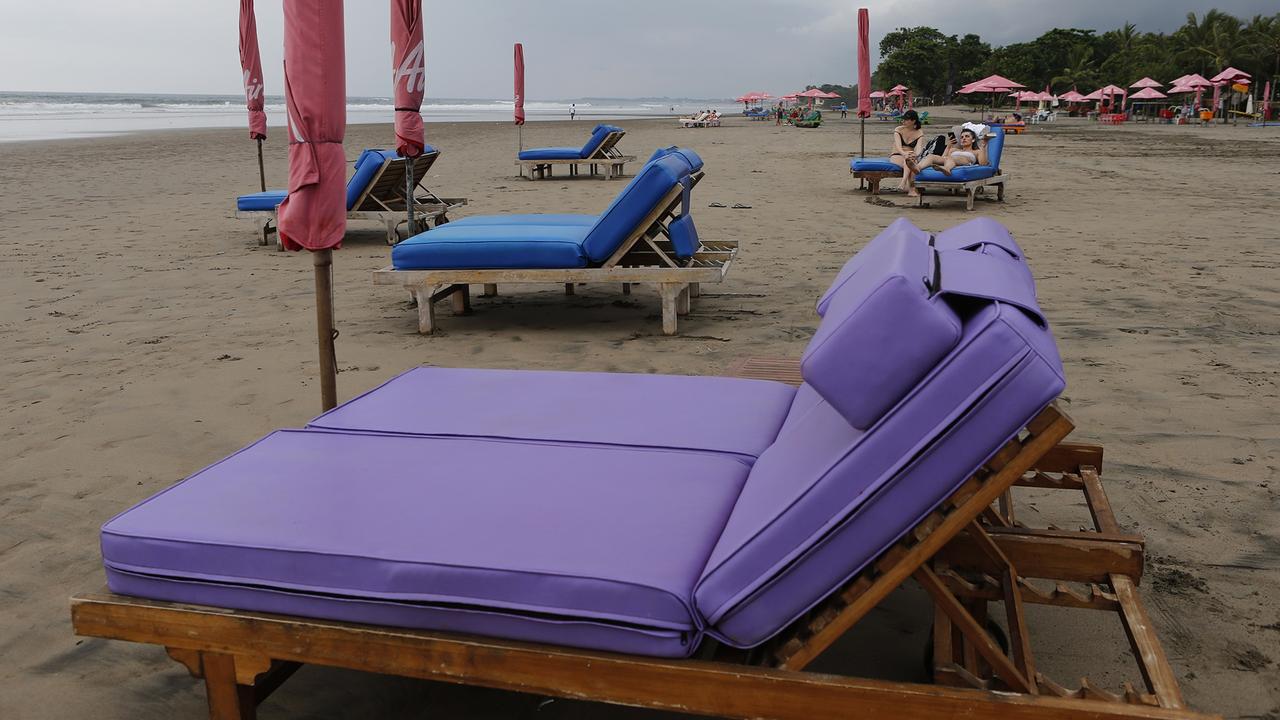
“From our research, we know about 80 per cent of Bali’s GDP is based on tourism,” he told Al Jazeera.
“There’s been this huge transition where almost everyone has placed all their eggs in the tourism basket,” Mr Taylor added. “The result of taking that away would be catastrophic.
“In most Western countries, households have some financial buffer. But in Bali, most people earn only a couple of hundreds of dollars a month. They live from day to day or month to month. If they lose their jobs, they will have nothing to fall back on.”

As the majority of street stalls, shops, restaurants and tourism providers shut up shop and either lay off staff or put them on unpaid leave, some workers say that “without tourists, Bali will die”.
Initially, Bali seemed to remain unscathed while the rest of the world started to feel the impacts coronavirus had on the economy and tourist arrival numbers.
But after a British woman in her 50s died while on holidays in Bali, uncertainty around whether or not to visit – or stay – on the island took hold.
Indonesia reported its first two coronavirus cases on March 2 and has tallied 1986 confirmed cases and 181 deaths as of April 3, making it the country with the most coronavirus deaths and the highest fatality rate in Southeast Asia.
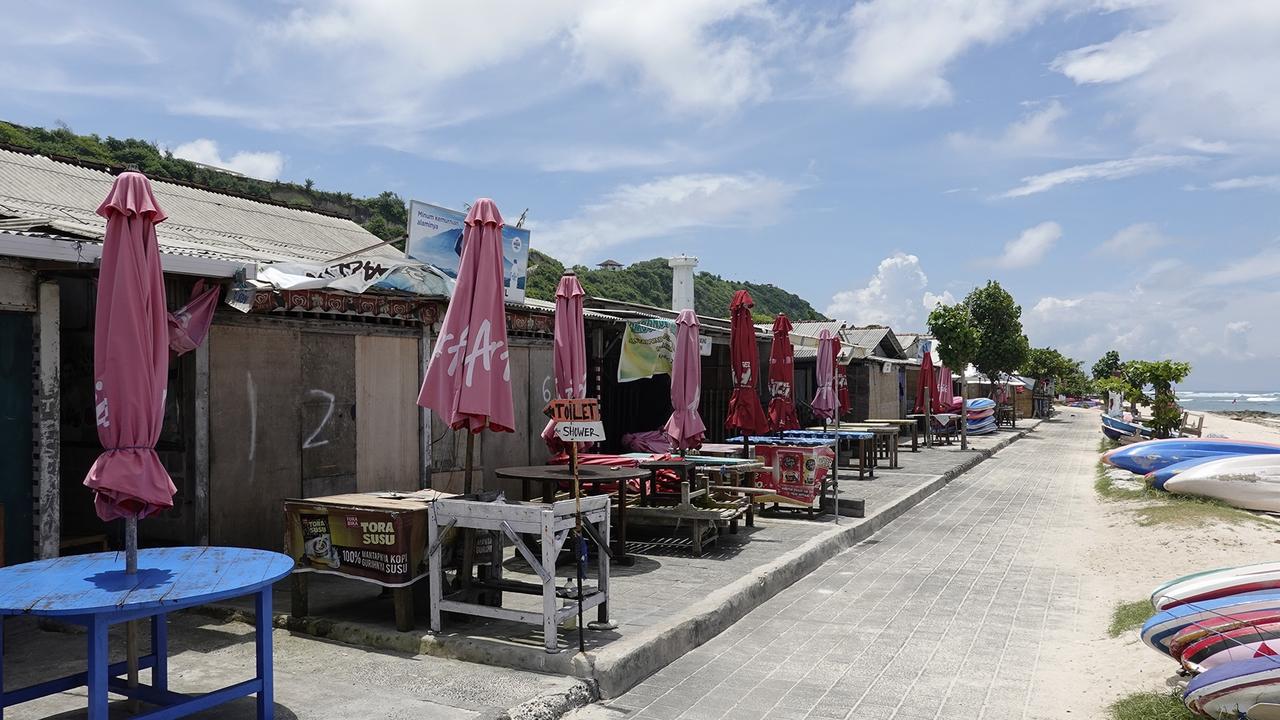
As thousands leave Bali in droves, the impact on tourism and the hospitality industry may be felt long after the World Health Organisation declares the pandemic over.
“Many people will lose their jobs because there will be no tourists. But it will impact the poorest people most,” Mr Taylor said. “What we’re hearing is that the central government in Jakarta may not be able to help them. They are concentrating on incentives for investors and the business community.”
While Bali has faced devastations before, including the Bali bombings in 2002 and 2005 and the Mount Agung volcanic eruption in 2017, this pandemic is not like a normal economic disaster. Experts say the many unknowns about this viral disease could plague the tourist destination for years to come.
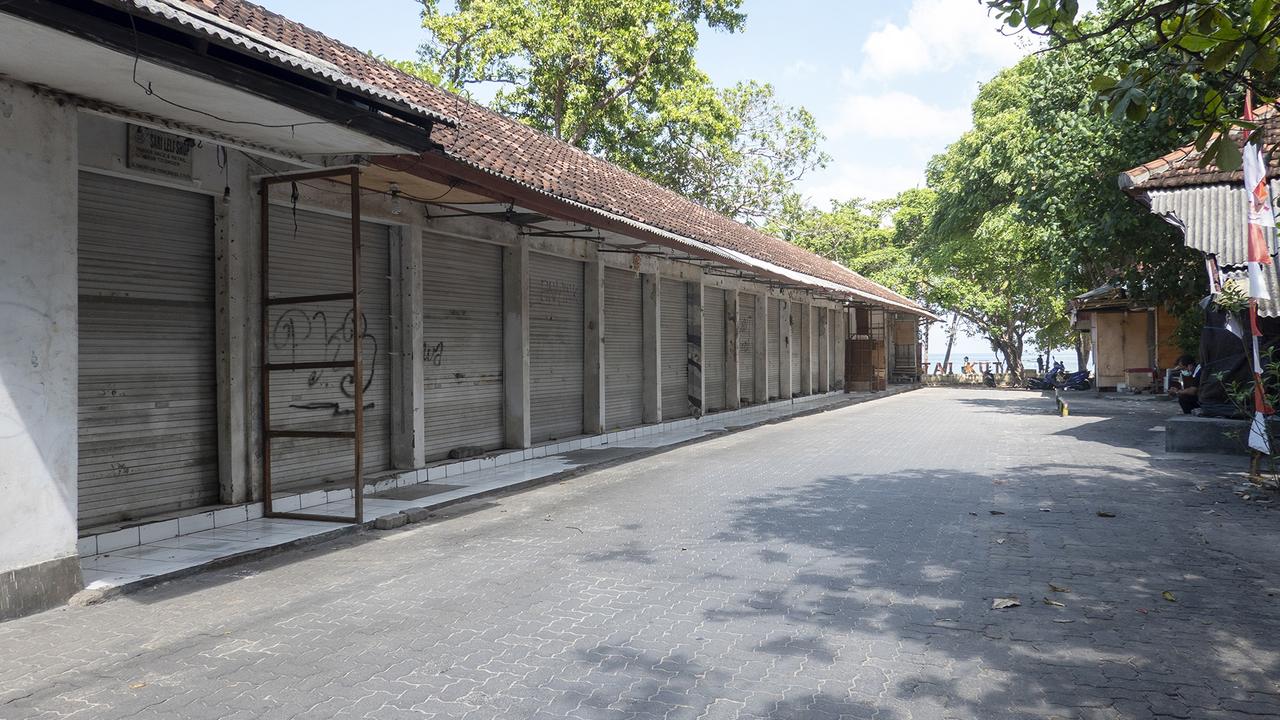
“I was in Bali four days after the bombings. There was still lots of anxiety – people worried about it happening again – but then life returned to normal and decisions could be made to find a way forward,” Mr Taylor said.
“But this is not a normal problem. No one knows how bad things will get in Bali or how long it will last or how it will affect the countries tourists come from. If you can’t even see the problem clearly, how can you find a way out?”


